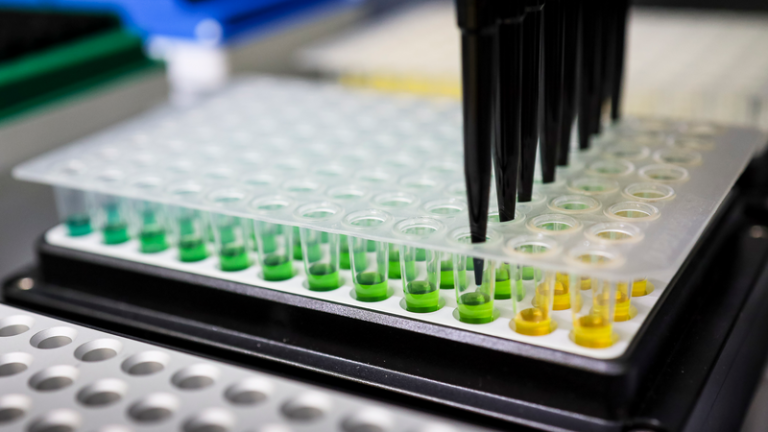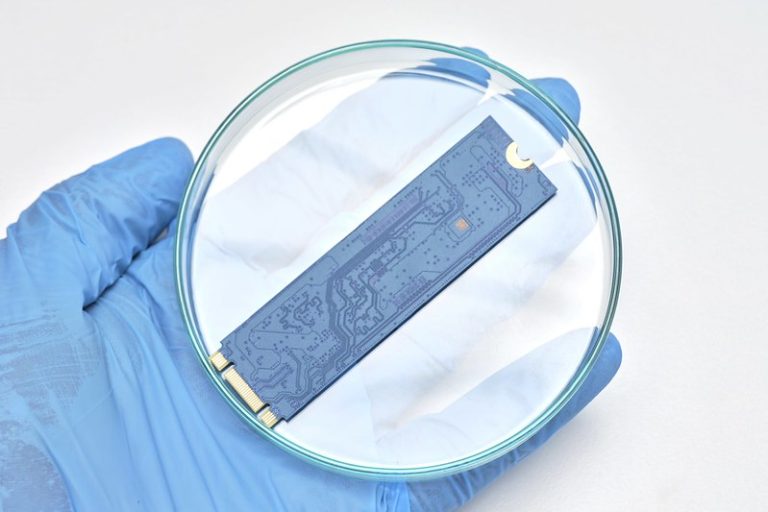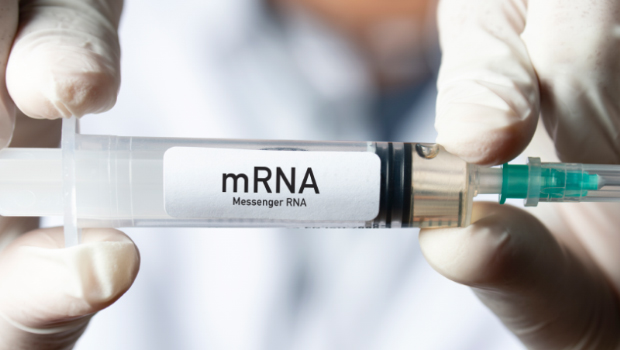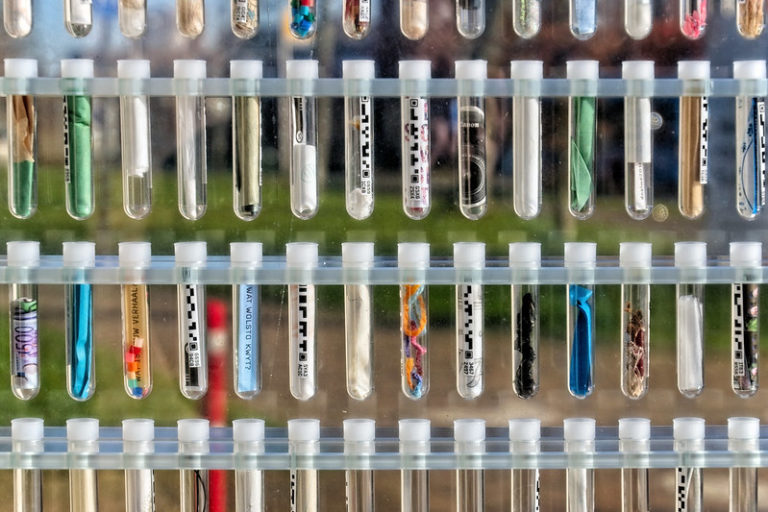News
GMO plants, bacteria, viruses and animals: can they all be deregulated?
The current debate on the deregulation of GMOs does not just concern plants. In April 2023, the European Commission proposed a partial deregulation of GMO micro-organisms, fungi and viruses used in medicine. For GMO/NGT micro-organisms used in agriculture, as plant protection products applied to the environment for example, certain multinationals and the European Parliament are calling for a deregulation project to be considered. GMO/NGT animals could follow.

When the European Commission proposed, on 5 July 2023, to deregulate GMOs, it specified that only plants would be concerned. It even asked to officially state that this deregulation would not apply to “microorganisms, fungi and animals for which the available knowledge [on safety] is more limited“. But it does not mention having begun to prepare the ground for possible future deregulation of these micro-organisms, as some multinationals are already asking it to do. Nor does it recall having already formulated – partial – deregulation for certain micro-organisms used in pharmaceuticals.
Diverting attention with GMO/NTG plants
The most visible deregulation project underway is obviously the one concerning plants. Formulated in July 2023 by the European Commission, the initial proposal was complete. End of risk assessment, end of authorisation for marketing or field trials, end of labelling, end of traceability, end of national measures to prohibit the cultivation of GMOs/NGTs and of environmental monitoring – everything has been deleted.
Since then, however, the Council of the European Union has not agreed on a common position, due to too many points of divergence between the Member States. For several of them, following the example of Poland, it is not possible to deregulate GMO/NTG plants on the basis of a theoretical inability to differentiate them from conventional plants if, at the same time, they must continue to be patented on the grounds of novelty. For other countries, consumers, processors and distributors must continue to be informed of the nature of products via labelling. Many also want to continue to be able to decide to ban GMO/NGT crops from their soil. For its part, the European Parliament finally voted on 7 February 2024 to adopt a position written in a rather complex and unsettled text.
The timetable imposed on Member States and MEPs has helped to focus attention on this project aiming at deregulating GMO/NTG plants. At the same time, however, companies have engaged in convincing the European Commission and some MEPs to initiate similar work on micro-organisms.
Deregulating GMMs based on new techniques?
Since 2022, a number of companies have been suggesting, or even demanding, that the deregulation envisaged for GMO/NTG plants should also apply to micro-organisms. The lobby groups EuropaBio, the Association of Manufacturers and Formulators of Enzyme Products (Amfep) and the EU Association of Specialty Feed Ingredients and their Mixtures (Fefana) are all keen for the European Commission to consider deregulation. EuropaBio, for example, wrote in 2022 that it wanted “a cohesive approach across sectors” and for “advanced knowledge on microorganisms [to] be recognised and considered when developing the policy action for plants developed using NGTs“. According to information obtained by Inf’OGM, Euroseeds delivered a similar message in August 2023.
Such a demand from the multinationals finally found a political echo in the European Parliament. On 7 February 2024, the text voted by MEPs surreptitiously mentioned micro-organisms1. It is requested that “available knowledge on other organisms, such as microorganisms […] should be reviewed with a view to future legislative initiatives on them” (recital 9). Similarly, an article adopted at the plenary session states that “By 2024, the Commission shall submit a report to the European Parliament, the Council, the European Economic and Social Committee and the Committee of the Regions evaluating the specificities of and needs for other sectors not covered in this legislation, such as microorganisms, including a proposal for further policy actions” (Article 30(5b)). It’s now up to the European Commission to decide whether it wishes to formulate such a deregulation proposal, which would include micro-organisms. In the meantime, it has begun to mobilise its experts on the subject. For example, the European Food Safety Authority (EFSA) has published an overview of existing GMO/NTG micro-organisms2. This is one of the documents needed by the Commission to draw up a legislative proposal. Similarly, the European expert committees on GMO detection and traceability have begun to examine the GMM issue3.
Partial deregulation of transgenic micro-organisms also envisaged
Viruses, bacteria and other fungi genetically modified by new techniques (NTG) may not be the only ones to be deregulated. Transgenic micro-organisms could also be deregulated or, to be more precise, the genetic sequences of these transgenic GMMs. This idea was raised at a meeting of Member States in Brussels on 20 September 20214. The Standing Committee on Plants, Animals, Food and Feed discussed the issue of “Food and feed resulting from fermentation with genetically modified microorganisms in contained used“. The discussion focused on batches of food or feed containing traces of GMM DNA that are not authorised other than in a contained environment. If such contaminated batches are to be withdrawn from the market, some Member States wanted to “discuss the matter“.
In February 2024, when questioned by Inf OGM, the European Commission made it clear that “the question has been raised whether products obtained by fermentation processes using genetically modified micro-organisms (GMMs) and containing DNA traces of the GMMs are produced ‘from’ or ‘with’ a GMO“. This is a question with high implications, because if batches containing traces of GMM DNA were to be declared as produced “using” rather than “from“, they would no longer have to be labelled and withdrawn from the market. Discussions are still ongoing, and “the Commission is examining the matter and will revert to the Standing Committee for further discussion“.
This questioning by certain member states was echoed by a response formulated by certain companies in 2022. In an article published in a scientific journal of the European Federation of Food Science and Technology5, certain companies6 proposed that the presence of GM DNA in batches of food additives should no longer lead to the withdrawal of contaminated batches or their labelling as GMO! On the political front, discussion of such partial deregulation is well underway.
Pharmaceutical GMMs partially deregulated
Regarding GMMs themselves, in April 2023 the European Commission proposed the deregulation of certain GMMs, including GMO viruses. This is a proposal for partial deregulation in the field of medicines. While the legal text may be obscure to the uninitiated, consultancies have already produced informative analyses.
The proposal submitted to the Member States and the European Parliament is a draft for a new directive on medicinal products for human use7. The proposal covers medicinal products known as gene therapy medicinal products “containing recombinant nucleic acid sequence(s) or genetically modified microorganism(s) or virus(es)“, but also “containing genetically modified cells“. Some private consultancies, such as Covington, believe that with this proposed directive, “the European Commission is streamlining the rules for clinical trials of medicines consisting of, or containing genetically modified organisms (“GMOs”)“8. Covington analyses that the Commission is proposing a simple, centralized system for clinical trials on GMO drugs. While industry will have to provide an environmental risk assessment for a commercial authorization application, “in turn, the Commission will exempt clinical trials from the scope of many GMO rules“.
For its part, Boyds writes that the proposed simplification of procedures for clinical trials is that “separate national applications under the GMO Directives would no longer be required. Instead, a single application in the form of a GMO risk assessment would be submitted alongside the clinical trial application using the same portal“9. According to the same consultancy, the proposal aims “at streamlining inclusion of the GMO risk assessment into the harmonised clinical trial applications“. This semantics often means downgrading the assessments currently required, as analyzed by Covington.
Microorganisms and viruses used as plant treatment products
In addition to pharmaceutical products produced from or consisting of GMOs, including micro-organisms (and viruses), as we have just seen, GMMs used as plant treatment products are concerned by another proposed regulation. This time, it’s not about deregulation, but about extending by five years the duration of patents granted on these GMMs.
Still in April 2023, the Commission published a proposal for regulation 2023/0126 (COD)10. The aim of this proposal is to extend patent rights on a “plant protection” product by a maximum of five years. Justifying its proposal by the fact that “the period that elapses between the filing of an application for a patent for a new plant protection product and the authorisation to place that product on the market makes the period of effective protection under the patent insufficient to cover the investment put into the research“, the European Commission publishes a text which mentions micro-organisms and viruses. The term “substance” refers to “chemical elements and their compounds, as they occur naturally or by manufacture“. Any measures taken for active substances will, in this proposal, concern “substances or micro-organisms including viruses“!
This draft regulation confirms that genetically modified micro-organisms (including viruses) could be considered and used as plant treatment products. They would therefore be disseminated into the environment as part of agricultural practices that choose to use them. When, on February 7 2024, MEPs called for a legal initiative to deregulate them, they opened the door to the environmental release of genetically modified bacteria, yeasts and viruses for agricultural models choosing to use them, and for others. While the companies would have already obtained an extension of their intellectual property rights for a maximum of five years, deregulation could even cancel out any assessment of the health and environmental risks associated with these GMMs.
Animals have not been forgotten in this panorama of deregulation projects. The amendment to Recital 9, voted on February 7 2024 and calling for deregulation work to be initiated for micro-organisms, also concerns animals. The text adopted by the European Parliament calls for “available knowledge on other organisms, such as microorganisms, fungi and animals, should be reviewed with a view to future legislative initiatives on them“. And the article calling on the European Commission to produce “by 2024 […] a report […] evaluating the specificities of and needs for other sectors not covered in this legislation […] including a proposal for further policy action” may well concern animals. Indeed, being de facto an “other sector”, GM animals could well be the subject of such a report, should the Commission decide to do so…
Theoretical timetables for current legislative procedures
| « NGT » plants | Pharmaceutical GMMs | GMMs in the environment | GM animals | GMMs and patents | |
| Request by EP | / | / | 7 february 2024 | 7 february 2024 | / |
| Proposal by EC | 5 july 2023 (2023/0226(COD)) | 26 april 2023 (2023/0132(COD)) | / | / | 27 april 2023 (2023/0126(COD)) |
| EP’s commission report | 24 january 2024 | 07 march 2024 (planned) | / | / | 24 january 2024 |
| Vote in plenary EP | 07 february 2024 | 10 april 2024 (planned) | / | / | 26 february 2024 (planned) |
| Vote of the EU Council | / | / | / | / | / |
| Start of trilogue | / | / | / | / | / |
- European Parliament, “Amendments adopted by the European Parliament on 7 February 2024 on the proposal for a regulation of the European Parliament and of the Council on plants obtained by
certain new genomic techniques and their food and feed, and amending Regulation (EU)
2017/625 (COM(2023)0411 – C9-0238/2023 – 2023/0226(COD))”, 7 february 2024. ↩︎ - Eric MEUNIER, “Few micro-organisms modified by Crispr are already on the market”, Inf’OGM, 30 January 2024. ↩︎
- Ibid. ↩︎
- European Commission, “Standing Committee on Plants, Animals, Food and Feed
Section Genetically Modified Food and Feed”, 20 september 2021. ↩︎ - A. Lensch et al., « Recombinant DNA in fermentation products is of no regulatory relevance », Food Control, Volume 141, November 2022. ↩︎
- Evonik Operations GmbH, BASF SE, Biosafe – Biological Safety Solutions Ltd, VIB, EuropaBio et DSM Nutritional Products Ltd. ↩︎
- European Union, “Proposal for a DIRECTIVE OF THE EUROPEAN PARLIAMENT AND OF THE COUNCIL on the Union code relating to medicinal products for human use, and repealing Directive 2001/83/EC and Directive 2009/35/EC”, 26 april 2023.
European Parliament, “Medicinal products for human use”. ↩︎ - Covington, » EU Pharma Legislation Review Series: GMO Medicines « , 28 april 2023. ↩︎
- Boyds, » EU Pharmaceutical Legislation Reform – Impact on clinical trials for innovative GMO medicines « , 14 november 2023. ↩︎
- European Commission, “Proposal for a REGULATION OF THE EUROPEAN PARLIAMENT AND OF THE COUNCIL on the unitary supplementary protection certificate for plant protection products”, 27 april 2023.
European Parliament, “Unitary supplementary protection certificate for plant protection products”. ↩︎













